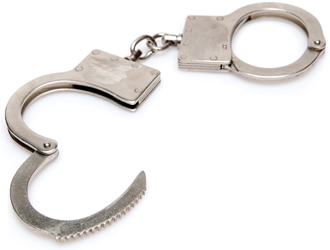Serious Vehicular Incidents

With most traffic violations, drivers get away with a mere slap on the wrist—a fairly small fine, one or two points against their license, and a note on their driving record. However, for a handful of especially egregious offenses, the penalties are far more severe. Large fines, jail time, and license suspension or revocation are a few of the possible consequences of committing a serious traffic offense. Read on for the details of what typically happens when you are convicted of any of the following traffic violations.
Driving on a Suspended License
Remember driving is a privilege, not a right, and the state can suspend a driver's license for reasons including but not limited to excessive traffic violations, driving under the influence of alcohol or drugs, and failure to pay fines for traffic offenses. Suspensions, unlike revocations, are finite—they can last anywhere from several months to several years. If you drive while your license is suspended, a first offense could get you several months in jail, several hundred dollars in fines, a mandatory license suspension of a year or more, and/or community service. Subsequent offenses carry even steeper penalties. In most states, the penalty for a first offense of driving under license suspension is the same as driving under a license revocation. To get your license reinstated after such a violation, your insurance company will need to file an SR-22 with the motor vehicle department of your state.
Filing a False Accident Report
This offense encompasses a wide variety of possible incidents that carry disparate punishments. If, for example, you provide details that you know or have reason to believe are false to a police officer filing an accident report, you would probably be convicted of a misdemeanor of some sort depending on your state. On the other hand, if you are convicted of staging an accident and filing a false accident report for the purpose of defrauding an insurance company, that offense will typically qualify as a felony punishable by multiple years in prison and large fines.

Fleeing or Evading Police
Most states define fleeing the police as operating a vehicle with the "intent to elude" and "knowingly and wantonly" disregarding the direction of a police officer to stop the vehicle (example language taken from Kentucky law). States also typically classify this offense with degrees (i.e., first, second, and third). In most cases, to be convicted of fleeing or evading the police in the first degree, some other crime must also be involved, such as driving while under the influence, immediately fleeing the scene of a domestic violence incident, or driving on a suspended license. A first-degree evading police conviction is almost always a felony, but the lesser forms of the offense may carry less severe penalties. A license suspension, fines, and steep insurance rate increases are almost guaranteed upon conviction regardless of the degree of the violation.
Leaving the Scene of an Accident
Also known as a hit-and-run violation, leaving the scene of an accident can be a misdemeanor or a felony depending on the nature of the accident and state law. In Arizona, for example, drivers involved in an accident causing serious physical injury or death who fail to stop are guilty of a class 4 felony, which carries a two-and-a-half-year term of imprisonment. However, if the driver caused the accident and then fled, he/she is guilty of a class 3 felony, which carries a three-and-a-half-year imprisonment term. The driver will also have his/her license suspended for three to five years. On the other hand, the consequences are slightly less severe if a driver flees from an accident involving only property damage. Most states define this offense as a misdemeanor and will suspend the driver's license for at least a year. If you are a witness to an accident and not an involved party, you are not legally required to stop.
License or Credentials Violation
A credentials violation can apply to a long list of offenses, including driving on an expired license, driving without proof of insurance, driving with a counterfeit or stolen license, driving on a suspended or revoked license, or violating the terms of a restricted driver's permit or license (such as those for drivers under the age of 16 in most states). Some of these offenses, such as driving without proof of insurance, do not fall into the category of serious violations so long as you can eventually provide proof of insurance. However, other violations, such as driving without a license, typically qualify as misdemeanors, which means you could face jail time and heavy fines. If convicted, the offense will also appear on your criminal record.

Drag Racing, Street Racing, or Acceleration Contest
In contrast to speeding, drag racing or street racing is considered intentional, wanton, and reckless and thus carries stiffer penalties. You will receive a racing violation if your speeding was the result of an acceleration contest with another vehicle. Many states treat racing as a criminal violation, while others classify it only as a serious traffic violation. A first-time offender found guilty of street racing will typically pay a fine of $100-$500, face a license suspension of 30 days or more, and receive demerit points on his/her license. Some states also have mandatory jail sentences for first-time racing offenders. Repeat offenders will face much larger fines and significant possible jail time.
Reckless Driving
Whereas careless driving is considered a minor traffic offense, reckless driving qualifies as a serious violation because the law typically deems the driver to have shown a wanton disregard for the rules of the road. In other words, careless driving may just involve an oversight, while reckless driving involves a deliberate act. In some states, mental state is considered in assessing a reckless driving charge. In others, the commission of specific traffic violations alone is enough for the charge. For instance, in many jurisdictions, going 30 miles or over the posted speed limit is enough to qualify as a reckless driving offense regardless of the mental state of the driver. Common punishments include a license suspension averaging about 90 days, fines of $100-$1,000, and possible jail time of up to 90 days for first-time offenders. As with most serious driving violations, offenders will need their insurance carrier to file an SR-22 with the DMV of their state in order to reinstate their licenses.
Vehicle Theft
Vehicle theft, also called grand theft auto, is defined as the taking of another person's vehicle with the intent to deprive the other person permanently of the vehicle. This offense is distinguished from joyriding, which is the taking of another person's vehicle for only a temporary period of time. In many jurisdictions, the law also differentiates between grand theft auto and taking a vehicle without the owner's consent. In the latter case, the offender typically had access to the driver's keys somehow. Usually, grand theft auto carries a term of imprisonment of 1-3 years. If you are a victim of auto theft, bear in mind that your rates will probably go up after you file a claim under the collision/comprehensive portion of your policy. Rate increases typically last for three years.

Vehicular Homicide
Also known as vehicular manslaughter, is an offense resulting in the death of another person due to the negligent operation of a motor vehicle. Some jurisdictions do not create a separate offense for vehicular homicide; rather, they include the offense in the category of negligent homicide. Some states have subcategories of vehicular manslaughter that account for aggravating factors. For instance, California has more serious penalties for those who commit vehicular homicide while intoxicated.
Depending on the state and the circumstances of the incident, vehicular manslaughter may be classified as a felony or a misdemeanor. For instance, in Georgia, first degree homicide by vehicle is a felony resulting in 3-15 years of imprisonment, whereas second degree homicide by vehicle is a misdemeanor that can result in a prison sentence of up to one year and a fine of up to $1,000. A multi-year license suspension is likely in either case, and some states will revoke the offending driver's license completely.





